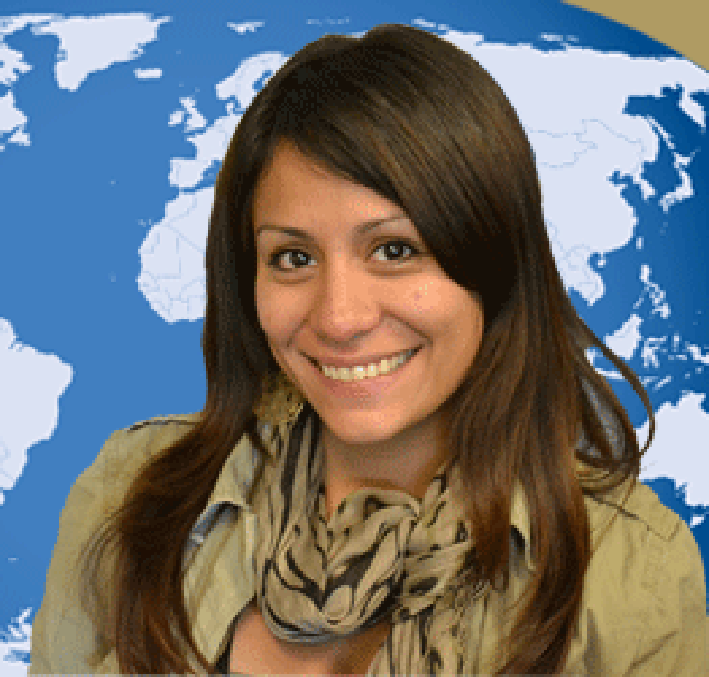
There is an art to writing and to writing well. But when English isn’t a person’s native tongue, a paper becomes harder to finish. To help UNC Charlotte’s international graduate students with their academic writing, the Graduate School recently funded an assistantship for a graduate writing tutor with a specialty in language instruction. Heydy Saavedra, a master’s student in Spanish, will fill the position this year.
After working as an interpreter for an international organization in her native Venezuela, Saavedra came to the United States more than a year ago to pursue a graduate degree at UNC Charlotte. Her passion, not only for languages, but for helping fellow students – particularly international students- led her to the Writing Resource Center (WRC), where co-coordinator Debarati Dutta snapped her up for this unique assistantship.
“When I first came to UNC Charlotte, I was amazed by the magnificent ways to get extra help outside the classroom,” said Saavedra. “In our [Venezuelan] academic system, there is no existence of a Writing Resource Center.”
According to Saavedra, international students tend to need help with their writing because English is not their first language. Some have difficulty expressing ideas in an unfamiliar language that is difficult to comprehend. Others tend to literally translate their thoughts onto paper resulting in variations outside the conventions of standard English. Although creativity is always appreciated, the academic community has format and style norms that need to be addressed.
“Foreign students in this country need to adapt to the English language and put emphasis on their grammar issues. Especially if their intentions are to pursue a career in America,” Saavedra stated. “As an international student myself, I commit at least 15 minutes of my day to improving my English.”
Katherine Hall-Hertel, assistant dean in the Graduate School, said,“For some time now, we have recognized the need our international students have for additional writing support. We see how some international students struggle with the thesis or dissertation. The addition of a graduate writing tutor who speaks English as a second language is one step toward meeting the needs of our international students. We plan to offer more structured support, but the addition of Heydy to the WRC has been very helpful.”
Saavedra spends her 20 hours per week split between the Center for Graduate Life and the Writing Resource Center. In addition, she works with the Anthropology Department, takes four classes and performs public relations work as the vice president of the University’s Spanish Club.
“I immensely enjoy working with students in their writing process,” said Saavedra. “Brainstorming ideas, improving transitions and helping with grammar issues-I like to create better writers. It’s a long term process that requires great commitment and dedication from our tutees, but worth it.”
The Writing Resource Center is administering this new assistantship. It is located in Cameron Applied Research Center, Room 149, with satellite locations in Atkins Library, Room 109, and the CGL, Cone University Center, Room 268. The center offers one-to-one writing instruction to students, faculty and staff from first-year to graduate in any discipline.
The Center for Graduate Life, CGL, provides graduate students with a centralized space dedicated to their needs. They create a stronger graduate community by promoting shared experiences, discourse and activities designed to support interdisciplinary learning. The CGL’s services are aimed at helping the graduate student better prepare for life during, after and beyond graduate school. The Center for Graduate Life is a collaborative effort between the Graduate School and the Division for Academic Affairs.